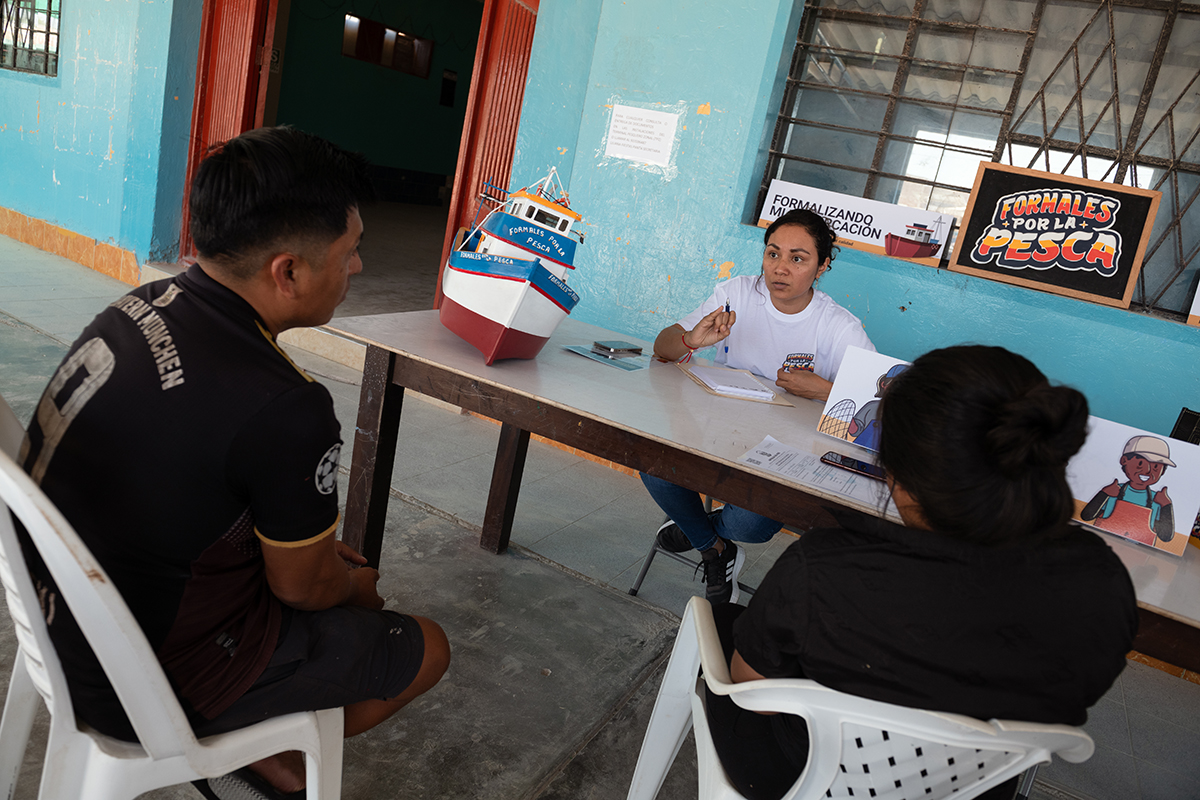Fishing cooperatives: 67% of vessels already have a permanent fishing permit
Formales Por La Pesca, promoted by the Por La Pesca project, offers free advice to boat owners on how to complete their formalisation. Thanks to this support, more than 500 vessels have already obtained their fishing permits.

According to the Ministry of Production’s Formal Fishing portal, the process of formalizing fishing cooperatives is well underway. To date, the process has advanced 67%, thanks to the intensive work of the regional governments of Piura and Lambayeque in issuing these permits. However, it is important that all boat owners complete their paperwork before September 30, as the temporary fishing permits will expire.
Flor Carrión, a specialist in fisheries formalization at the Peruvian Society for Environmental Law (SPDA), points out that “only 33% are missing to fully formalize the fleet belonging to the cooperative system and to be able to continue fishing legally, which will mainly benefit the pota and perico fisheries”.
Progress in formalization
Currently, there are 3 artisanal fishing cooperatives in the country that are part of the formalization process. The most advanced is the Cooperativa Pesquera San José (from Lambayeque), which represents 193 vessels, of which 151 (78%) have managed to obtain their definitive fishing permit.
The other two cooperatives are located in Piura: the Cooperativa Jehová es mi pastor, nada me faltará (from La Tortuga), which represents 357 vessels, has received 269 (75%) permits to date; and the Cooperativa Jehová Rey de Reyes (from La Islilla), which represents 365 vessels, has received 194 (53%) permits.
Por la Pesca: promoting formalization
The lack of formalization in the artisanal fishing sector has various causes, such as lack of knowledge of procedures, lengthy administrative processes, and even strenuous fishing operations that can last more than ten days at sea, which prevent people from following their procedures properly. Informality hurts people’s work because without a fishing permit, they are subject to fines, cannot access formal markets, or be part of the health system.
“People who are boat owners and have their temporary fishing permit have to submit 4 main requirements: an application in the form of an affidavit, the simple copy of their temporary fishing permit, the simple copy of the registration certificate of their boat and the copy of the document that proves the ownership or possession of their boat. For those boat owners who want free advice, we have launched the “Formalize Fishing” campaign, so do not hesitate to write to us at 914 424 735 for information,” explained Carrión.
The formalization of artisanal fishing in the country is not only a step towards the sustainability and protection of marine resources, but also a recognition of the work of those who depend on the sea for their livelihood. The SPDA’s health formalization specialist, Carlos Olivares, also recalled that once boat owners have obtained their definitive fishing permit, they will be able to process their health protocol, which will allow them to access new customers, such as processing plants, and above all, ensure the quality of their seafood products.
About the campaign
Formales Por La Pesca is a campaign within the Por la Pesca project that aims to promote and facilitate the formalization of boat owners, crew members, artisanal divers, etc. Through formalization, people have access to safer work and can provide quality seafood to consumers.
Por la Pesca aims to reduce illegal, unreported and unregulated fishing in Peru and Ecuador and is the result of a joint effort between the Walton Family Foundation and the United States Agency for International Development (USAID), the Peruvian Society for Environmental Law (SPDA), WildAid, Sustainable Fisheries Partnership (SFP), World Wildlife Fund (WWF), Pro Delphinus, Future of Fish, Environmental Defense Fund (EDF), Redes-Sostenibilidad Pesquera and The Nature Conservancy (TNC).